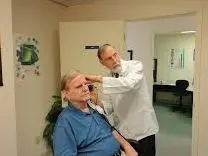
Noise-induced Hearing Loss and Sound Danger Zones
By now, it is well known that repeated and prolonged exposures to excessively loud sound damage and age ears and hearing permanently and prematurely. This is called Noise-induced Hearing Loss. The damage is cumulative but it is preventable.
So, how loud is it?
Many people are willing and eager to protect themselves from sound damage but they do not know when they are in the danger zones.
Sound volume is measured in dBs or decibels. Human ears are put at risk when the volume hits 85 decibels, which is already very loud. In the general industry, ear protection becomes mandatory at average levels of 85 decibels and more.
There are some online sites with helpful illustrations related to sound level and daily exposure limits. One gets a general feeling for how loud entertainment events, machinery and even house appliances might be. For instance, a loud hair dryer can put out over 90 decibels around the head and so, I use earplugs when drying my hair.
Some other tips include:
· If at first, it seems too loud, it more than likely is too loud. The first impression is the better one. The longer we linger, the more we feel mistakenly that we are getting used to the sound level. There is no “getting used to it.” There is only “becoming deafer” to it. Examples of such exposures might be over-the-top loud worship services, movies, gym classes, concerts etc. Protect yourself!
· It is way too loud if one has to scream at those who stand 3 to 5 feet away from us in order to be heard. Here one might think of noisy sports bars, workplaces or Holiday Parties. The need to scream calls for protective or evasive maneuvers: Get out of there; use hearing protection such as earplugs; move away from amplifiers; turn it down or ask for it to be turned down.
· Power tools are way too loud for unprotected ears. For example, a chain saw screams a way at 110 decibels, which can damage hearing within 90 seconds or less. Even those power tools that are sold as sound-reduced or sound-attenuated are not necessarily ear-safe – although any sound reduction is a step in the right direction. Know the decibel output of tools or equipment.
Sound meters and smartphone apps
Obviously, guessing at sound levels can be fraught with problems. In order to get accurate, in-the-moment sound level readings, professionally calibrated sound meters are used in workplaces and throughout the general industry.
Although they can be pretty pricey, sound level meters can be purchased online for personal use but this means that one has to carry the instrument at all times.
For use in private life, many prefer to download free sound meter apps for smartphones. In order to get the most accurate results, the app has to be supported by the phone platform. In other words, an iPhone calls for an i-compatible app; an Android for a droid-compatible app etc. In this case, the biggest variation between phones lies in the sensitivity and clarity of the microphones.
The National Institute for Occupational Safety and Health (NIOSH) offers a free iOS compatible app, which can be downloaded from their website. For Androids, thedroidguy.com offers some helpful advice.
What about MP3 players?
In general, manufacturers do not tell in their specifications how much sound these devices can pump out. So, as a fallback, know the 60/60 rule!
Do not listen to volumes that are louder than 60% of the volume dial. At that level, we hear plenty while still keeping in the safe zone. For example: If the volume dial has 10 clicks from low to high, do not go past 6 clicks. If you ever dial up in order to get more oomph, remember to dial back down. Listen for a maximum of 60 minutes and then give the ears and brain and the body a rest.
So, learning about sound levels and the dangers that they pose is the first step in keeping hearing healthy for now and for the future. Consider it an investment in quality of life because for none of us the day should ever come when the music simply dies.
****
Meet me online:
Guess what! I do ZOOM presentations! Nice way to talk to people across the nation.
Email: monique.hearing@gmail.com
Visit my website hearing-loss-talk.com
Join me on Facebook: https://www.facebook.com/whatdidyousaybook/
I even Tweet: @WhatDidYouSay88